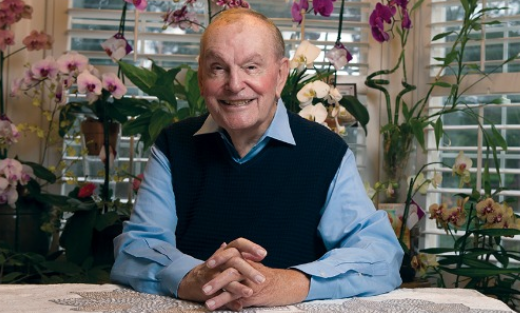Magazine Articles About Dick
Workforce Magazine Article 1/28/2015
Author: Garry Kranz
What Color Is Dick Bolles' Parachute? Golden.
"Despite emerging in the post-Watergate twilight of the anti-Vietnam War era, career experts say “Parachute” remains as relevant as when it first appeared. “Maybe even more so, considering the structural changes in how work is organized today and the fact many people have a portfolio of multiple careers,” said Rich Feller, a professor of counseling and career development to master’s and Ph.D. graduate students at Colorado State University. Feller, a past president of the National Career Development Association, added the book has “nudged the field to stay current every year, not only on how to do a job search but also the notion that career development is a lifelong experience. Dick has provided the framework for us to help people transfer their skills to new possibilities.”
“Parachute” has won accolades for its impact on the world of work. The Library of Congress’s Center for the Book names it one of 25 books that have shaped readers’ lives, a list that includes such literary classics as Mark Twain’s “The Adventures of Huckleberry Finn,” Harper Lee’s “To Kill a Mockingbird,” Leo Tolstoy’s “War and Peace” and “The Diary of Anne Frank.” The U.S. Labor Department includes “Parachute” among books that shaped work in America since 1758, a collection that includes Benjamin Franklin’s “Poor Richard’s Almanack,” Adam Smith’s “Wealth of Nations” and John Steinbeck’s “Of Mice and Men.” Time magazine ranks “Parachute” 22nd on its list of the top 100 most influential nonfiction books.
Dan Pink's article in Fast Company
Author: Dan Pink
Written about What Color Is Your Parachute? 15 years ago, by the renowned Dan Pink, a lot has changed since: more sales (over 10,000,000 now), different family history (I've been married to my beloved Marci for ten years,) different President. Still, Dan is a good writer, and it was an interesting interview. Here is a passage from it:And, over the past three decades, Bolles's preferred method has remained remarkably consistent: Sending out résumés doesn't work. Neither does answering ads. Employment agencies? No way. What does work is figuring out what you like to do and what you do well — and then finding a place that needs people like you. Contact organizations that you're interested in, even if they don't have known vacancies. (Bolles actually coined the now commonplace term "informational interview.") Pester friends and family members for leads. Once you get in the door of the employer of your dreams, show how you can solve its problems."